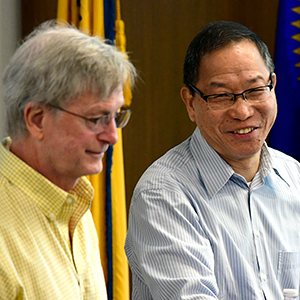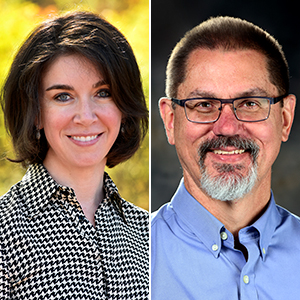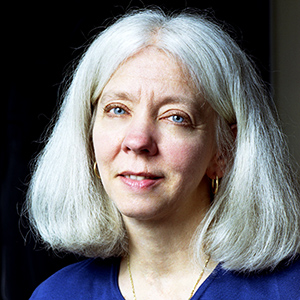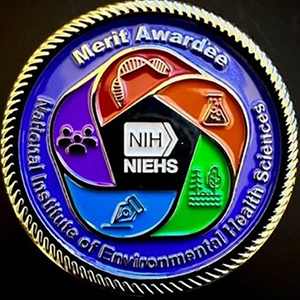In late October, the National Institutes of Health (NIH) announced that Trevor Archer, Ph.D., received the honorific title of NIH Distinguished Investigator. He is chief of the NIEHS Epigenetics and Stem Cell Biology Laboratory (ESCBL) and head of the Chromatin and Gene Expression Group.
Archer became the second NIEHS researcher to gain this promotion, which is reserved for the top 2% or 3% of scientists across all 27 NIH institutes and centers. He joins Thomas Kunkel, Ph.D., of the DNA Replication Fidelity Group, who earned the distinction in 2011.
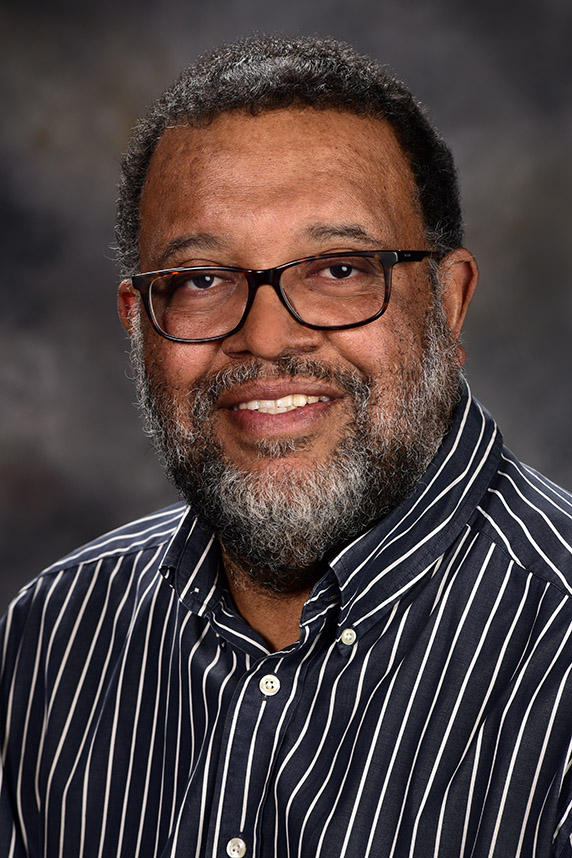 Archer is a member of several scientific societies, such as the Endocrine Society, the American Association for Cancer Research, and the American Society for Cell Biology. (Photo courtesy of Steve McCaw)
Archer is a member of several scientific societies, such as the Endocrine Society, the American Association for Cancer Research, and the American Society for Cell Biology. (Photo courtesy of Steve McCaw)Following the nomination by NIEHS Scientific Director Darryl Zeldin, M.D., the NIH Distinguished Investigator Review Subcommittee peer-reviewed Archer’s research and other accomplishments during his 20-year career at NIEHS. NIH Director Francis Collins, M.D., Ph.D., approved the application.
'Dr. Archer is a world leader in hormone receptors, epigenetics and chromatin biology, stem cell biology, and transcriptional regulation,' said Zeldin. 'This is a well-deserved honor, and I am delighted that he is being recognized for his numerous accomplishments.'
Research focus
Archer’s group studies three major areas.
- Chromatin — the material that makes up chromosomes.
- Stem cell pluripotency — the ability of stem cells to differentiate into more than one type of cell.
- Epigenetics — the study of how modifications that do not change the DNA sequence turn genes on or off.
'My group and I have made some relatively important contributions to understanding how chromatin remodeling proteins work with transcription factors and their role(s) in signaling,' said Archer. 'We’ve also demonstrated that understanding chromatin proteins and stem cell regulatory mechanisms is important for the future of medicine.'
ESCBL Deputy Chief, Paul Wade, Ph.D., has had a front-row view of Archer’s scientific impact. “Trevor Archer’s lifetime of work has been instrumental in shaping how we think about gene expression in a chromatin environment,” he said. “He was among the first to show that chromatin presents a barrier to gene activation and that chromatin remodeling complexes are key to overcoming this barrier.”
Although he has been named as an NIH Distinguished Investigator, Archer said the work that he and fellow NIEHS scientists do is a function of being able to attract talented and hard-working colleagues. He believes that one only succeeds with the help of one’s colleagues.
Mentoring scientists of color
Diversity in the scientific community is a great strength, according to Archer. He has worked tirelessly to pursue this ideal by recruiting researchers from underrepresented groups.
For example, he leads the NIEHS Intramural Research Training Award Scientific Diversity Program and is an inaugural member of the NIH Equity Committee, which attempts to address issues of inclusion across the NIH Intramural Research Program.





